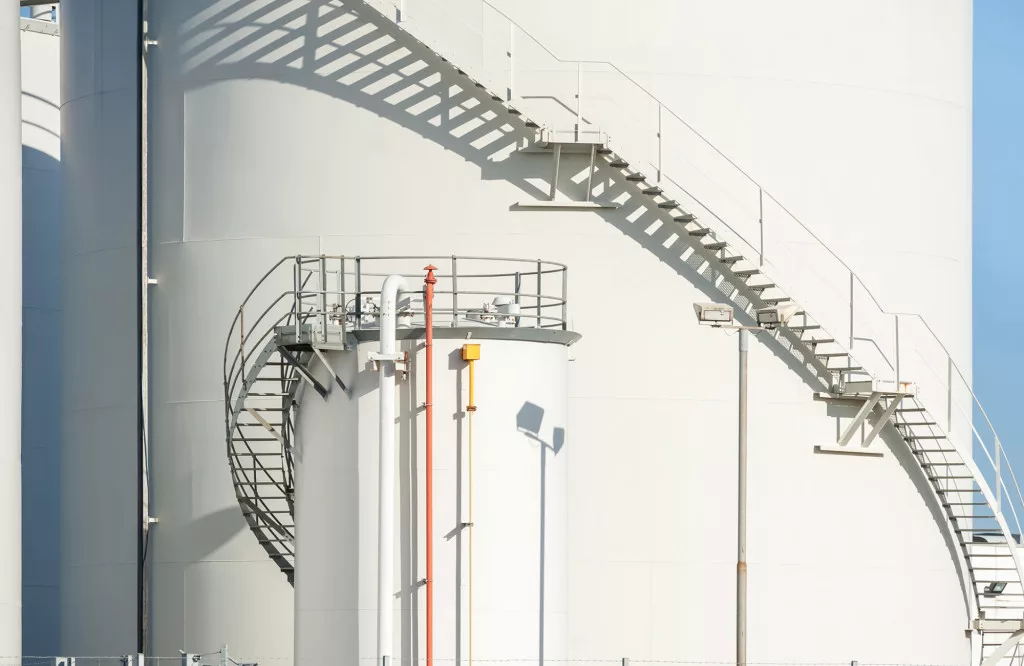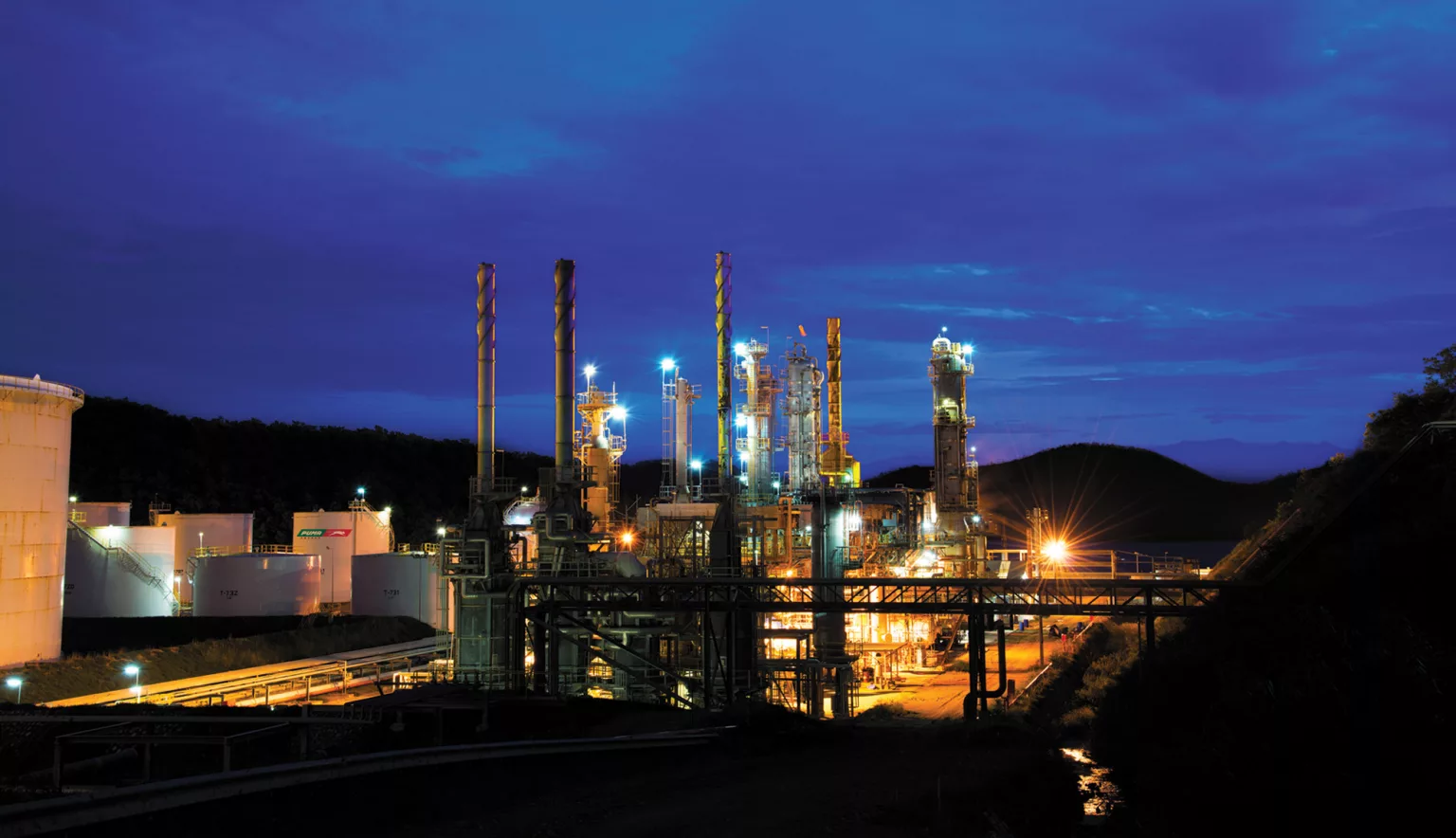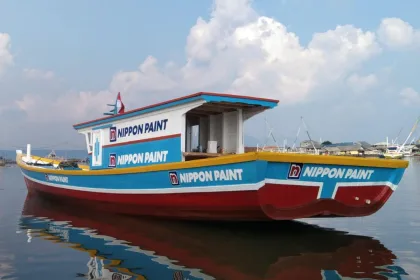Empowering SMEs, investing in individuals and infrastructure, and delivering a complete fuel solution to urban and rural communities alike, Puma Energy PNG continues to take great pride in being a local socioeconomic stalwart.
ENERGISING COMMUNITIES IN PNG
“We are the major investor in critical supply chain infrastructure to ensure the country keeps moving. Through this and our refinery, we play a key role in the energy sustainability of Papua New Guinea. Our emphasis on SME development ensures this business sector will continue to grow, key to empowering the people of this nation.
“We will partner with local entities and deliver a special part of the energy sustainability strategy for PNG, using local crude through a local refinery to feed the energy needs of the nation – a totally self-sustained energy supply chain.”
It’s been well over a year since we last sat down with Puma Energy Papua New Guinea and its then Director Jim Collings, discussing the company’s continual efforts to be a critical chain in the link of successful national development via one crucial component – energy.
The commitments made in the opening quote is where that discussion was left, the overriding message of which was clear – that Puma Energy would continue to play a key role in helping to cultivate a secure and reliable domestic supply of fuels for its growing economy.
So, as we enter 2020, what better time to ask the critical question: how much progress has been made?
“From the rise of new products such as liquefied petroleum gas (LPG) and natural gas (LNG) to the growing role of micro, small and medium sized enterprises (MSMEs), I can safely say that PNG’s energy evolution has continued to make headway,” states HulalaTokome, the company’s new Country General Manager (with Collings now assisting the business in a Chairman capacity).
“Today, Puma Energy stands as an organisation that has at least 100 days’ cover for the entire country’s energy needs. That is an amazing feat. PNG is ahead of many countries in Asia Pacific, including the likes of Australia and New Zealand, in terms of its fuel stock cover.”
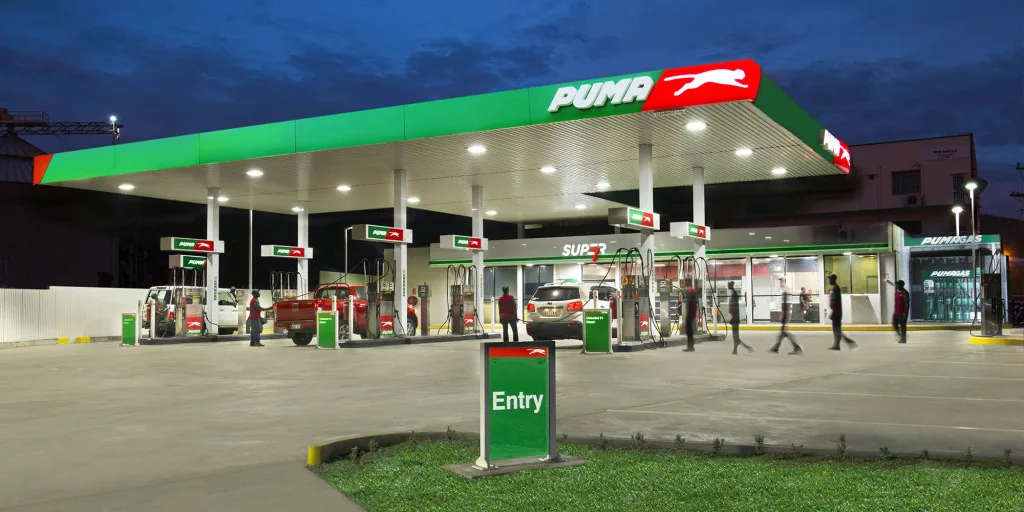
GRASPING THE OPPORTUNITY
Indeed, Tokome’s first reference related to recent breakthroughs made in gas fuels is a point of particular interest.
According to recent statistics from the Papua New Guinea Chamber of Mines and Petroleum, local LNG production rose from seven million tonnes in 2015 to nine million tonnes in 2019, while oil production dropped from 9.5 million barrels to seven million barrels.
2014 witnessed the completion of the infamous $15 billion PNG LNG project, an economic impetus that saw the extractives sector surpass agriculture, forestry and fishing in terms of its overall contribution to national GDP (20.4 percent compared to 17.8 percent).
And since then, gas products have only continued to become more pronounced year by year.
“LPG and LNG are the products of the moment when it comes to today’s energy market in PNG,” Tokome states.
“It’s a solution that has clear environmental benefits as a fuel, with a carbon footprint around 20 percent lower than conventional heating oil and 50 percent lower than coal. At the same time, however, it is providing the perfect opportunity for socioeconomic empowerment.”
It is this latter point that makes gas a particularly valuable asset in the eyes of Puma Energy.
Aligning with the government’s own efforts to fundamentally facilitate a national energy transition towards natural gas, its Puma Gas division and LPG business model (inaugurated 2017) have maintained a rapid growth trajectory, the company now delivering this crucial product to the country’s urbanised and rural areas.
How? Through an extensive distribution network powered by local people who have been able to capitalise on the tailwinds that this energy transformation is providing.
“LNG and LPG will be key components for us in terms of continuing to deliver the best solutions to our customers,” Tokome affirms.
“But it is also creating a critical ecosystem that is able to support the lives of so many. We’ve been proactively engaging with MSMEs since the launch of our LPG business, encouraging our local communities and people to find a career in this segment and developing a network of reliable resellers as a result.”
To date, the company has cultivated business relationships with hundreds of startupenterprises and entrepreneurs, offering up its time to guide them and develop their skillsets and competencies to ensure the successful distribution of international standard products.
“After year one, our network of local LPG partners stood at around 150,” Tokome adds. “Today, that number has reached more than 360 active dealers with anticipated growth to be in excess of 500 such partners by end of 2020.”
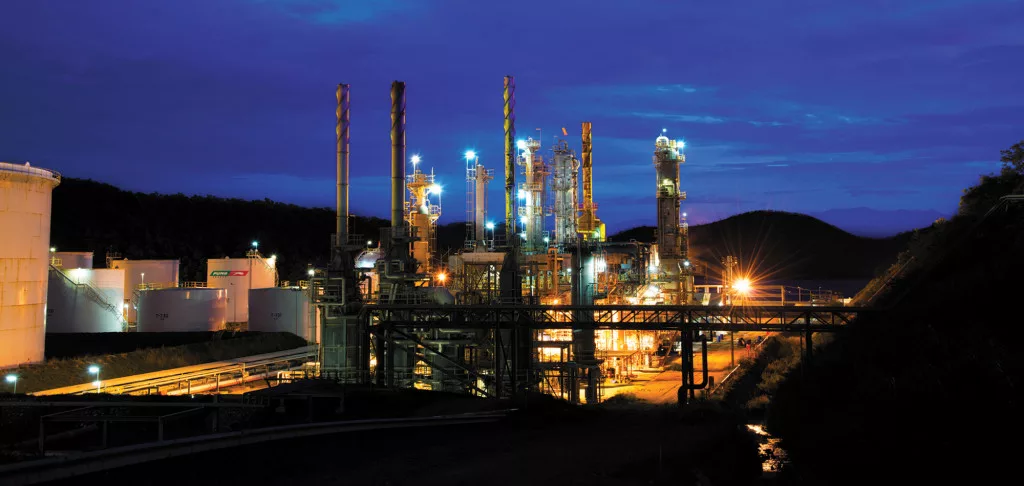
QUALITY FUEL PRODUCTS MADE IN PNG
LPG is not the only way in which the firm has empowered budding entrepreneurs to leverage the opportunities provided by the oil and gas industry, however. In tandem, it has been collaborating with a small business to find ways to treat and reprocess waste oil.
The initial pilot programme showed promise, and Puma Energy PNG has since been working with the organisation to build capacity so that it may reprocess oil on a scale that will allow it to be blended into other product streams, thereby improving the energy efficiency of the refinery.
Beyond these efforts, CSR has become an integral part of the oil and gas giant’s overall remit in recent times.
Here, the GM is able to point to Puma’s commitment to support YWAM Medical Ships for a further two years – an entity helping to reach some of the most remote communities in the country with healthcare and training in collaboration with local health providers.
“We are incredibly proud and honoured to be fuelling a journey that, in addition to improving health and training outcomes and delivering sustainable, bright futures for individuals and communities, also provides wonderful volunteering opportunities for PNG’s health professionals and young people to develop new skills and a sense of pride in helping PNG to be a better place,” he states.
“Puma Energy is committed to supporting the PNG community and this agreement with YWAM is just one of the ways we are doing this.
St John Ambulance, a public institution providing critical ambulance and prehospital care services on the frontline across PNG, is another such initiative.
“October 2019 saw us commit to furthering our relationship with St John for an additional two years,” Tokome continues. “We will continue to supply fuel and lubricants that ensure their brave staff can tend to emergencies across the country 24 hours a day, seven days a week.
“St John travel some 300,000 kilometres per year to some of the remotest parts of PNG, and we’re proud to be helping to keep them on the road as they respond to roughly 10,000 incidents on an annual basis – it’s a great number of lives they’re saving.”
The company also supports Cheshire Disability Services, likewise providing fuel for its outreach and mobility services. And it is also active in the education sector, backing the Buk Bilong Pikini (Books for Children) initiative and supporting the construction of crucial classroom and schooling facilitates for City Mission.
“Towards the end of last year, we worked with a number of schools within our footprint countrywide to incentivise excellence in schools by providing students with gas stoves and cookers that have helped to transform the lives of their families,” Tokome adds.
“Sitting in the office and going through a daily routine, you often find yourselves complaining about trivial things, and can take life for granted. But once you step out into rural PNG, you instantly become aware of how lucky you are to be working in the jobs that we are and for a company like Puma Energy.
“We want to continue to energise communities to help them develop sustainably. We try to ensure we have a good spread, from the highlands to Port Moresby and along the coastal regions, and although we’ve only embarked on many of these initiatives in the past year, the feedback we’ve already had is incredible, and we’ll continue to expand upon these efforts.”
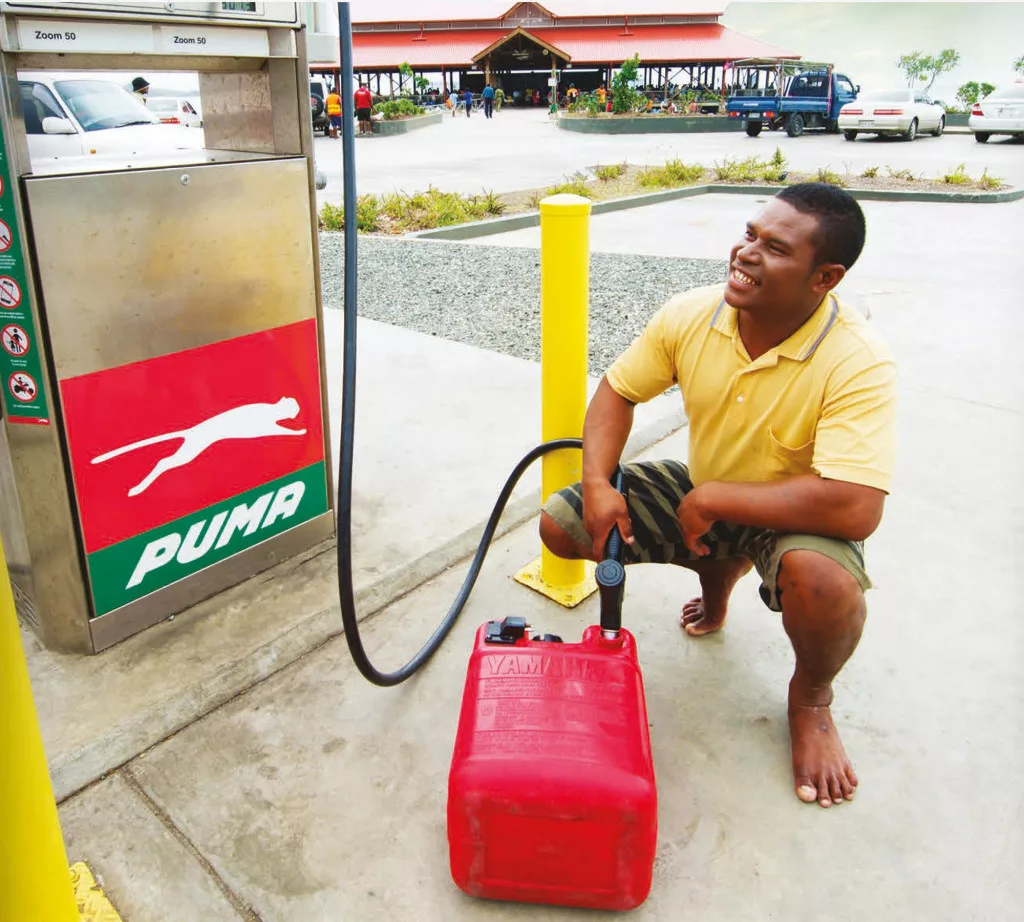
REFINERY AND RELATIONSHIP-LED INVESTMENT
Indeed, LPG and CSR are both a critical part of Puma’s PNG operation. Yet they form just a fraction of the firm’s overall product and service portfolio.
Statistics from the Puma Energy Group showcase the enormity of its wider value proposition: globally, it has 530,000 tonnes of bitumen storage capacity, it owns the largest bitumen ship in the world by carrying capacity and its retail footprint spans more than 3,000 sites across 48 countries, fuelling millions of customers’ journeys.
And that’s not to mention its refinery activities, a core asset for which is the Napa NapaRefinery located in Port Moresby along PNG’s southern border that has been subject to major renovation efforts of late.
“As part of our ongoing commitment to energising local communities with high quality lubricants and fuel right across PNG, we successfully completed a major turnaround and inspection (T&I) at the Napa Napa Refinery last year, closing the refinery for one month,” Tokome states.
“It was a feat recognised globally by the Puma Group. And rightly so – we doubled our on-site workforce, allowing us to complete the T&I injury free and in accordance with our budgets and timelines. This was all done without any disruption to supply for the country.
“It’s just one of numerous examples of the amazing capabilities of our staff. They are the fibres of our whole operation, and without the great work that they do day in day out we wouldn’t be anywhere near where we are today.”
Talk of stakeholder contributions also turns the GM’s attention to Puma Energy PNG’s suppliers.
Deemed similarly crucial to the organisation’s ability to continually exceed expectation, Tokome pays tribute to the mutually beneficial, long standing relationships that have endured both challenging and prosperous circumstances due to the cyclical nature of the oil and gas sector.
“From building and refurbishing our facilities to optimising our logistics, these partnerships have become invaluable,” he states. “We’re able to support and sustain the businesses of our suppliers, and they are able to do the same for us. We develop and deliver solutions that complement each other.”
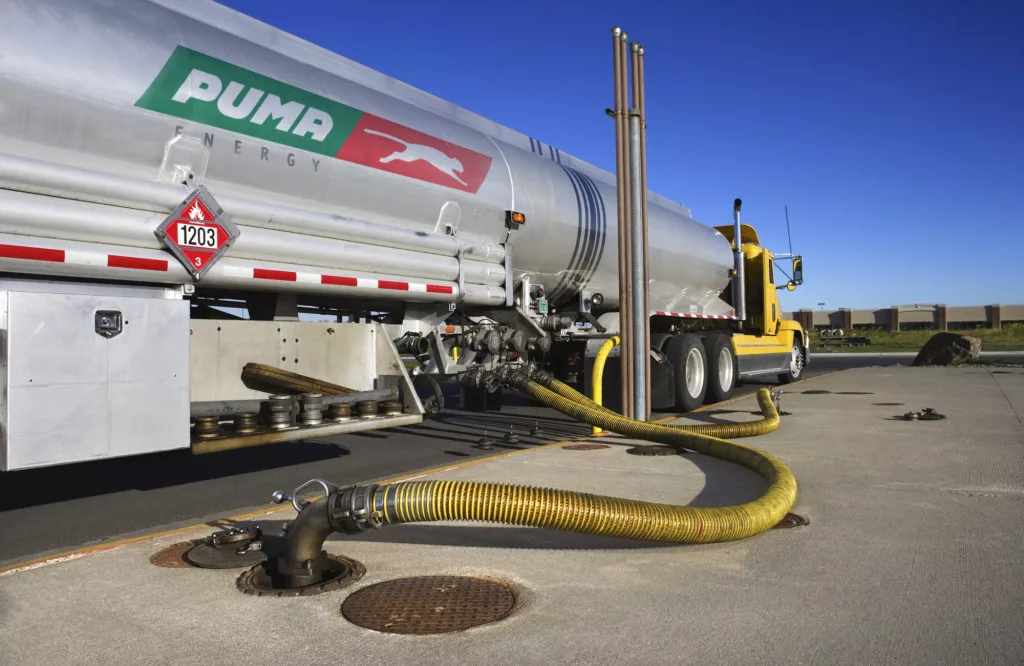
WHAT OF 2020?
All things considered, it is hard to argue that Puma Energy Papua New Guinea isn’t now better off than it was 18 months ago.
The firm’s alignment with the government in the way of assisting an energy transition towards the LNG/LPG space is fully underway, while its Napa Napa Refinery and CSR efforts are equally more progressive than ever before. Likewise, the company has provided the platform for MSMEs to thrive, and for infrastructure development to excel owed to its substantial local bitumen resource base.
Combine these strides with a high quality, complete fuel solution portfolio that also includes traditional fuels such as diesel, petrol and kerosene, and the firm’s sensical endeavours have undeniably been fruitful.
But what of 2020? And beyond that?
For the GM, maintaining a balancing act of both keeping things simple and frequently thinking outside the box to adapt to new opportunities is critical. Puma Energy sees great opportunities within its existing portfolio of activities while also expanding into new ventures within the energy markets. This is a critical thrust for the business as it drives even harder to energise communities.
“Am I optimistic for the future?” Tokome ponders as our conversation comes to close.
“Right now, we’re focused on completing a number of projects that will continue to futureproof the business, including the refurbishment of a number of our downstream retail sites, and the construction of a new flagship facility in Port Moresby which we’re expecting to help to transform one particular suburb of the city.
“At the same time, however, the direction of the local oil and gas industry depends on a number of potential projects that are currently pending approval. We’re in talks with both the government and potential developers on this front, and we’re hopeful that these are going to come to an advantageous conclusion. We are here for the long term and will maintain our commitment to PNG and the people we have within our business in partnering and being on this journey together.
“We are excited about the future in being the leader in energising communities within PNG. Development in PNG tends to come in waves, and we see some of these current pursuits as the catalysts to provide the grounding for the next such phase and being prepared for the future.”
